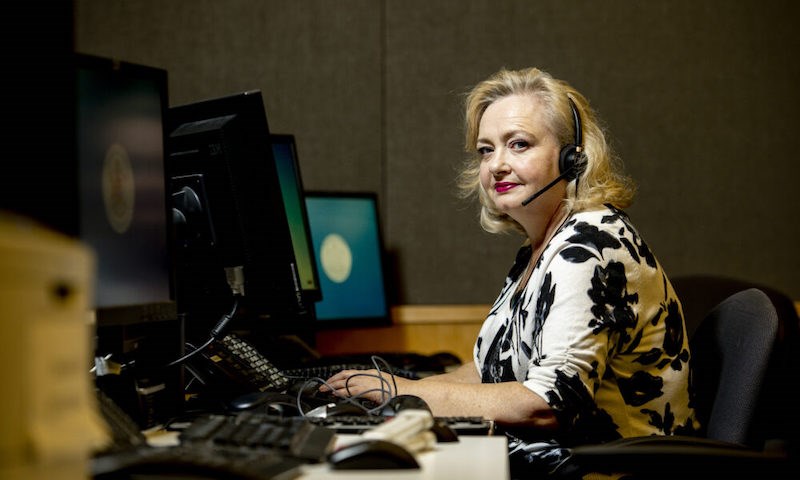"They're crying before their shifts, anxious to know whether or not is going to be a bad day."
That's Donald Grant, president of the Emergency Communications Professionals of BC (CUPE Local 8911), who says that E-Comm’s 9-1-1 operators have been pushed beyond their breaking points this year. In addition to a soaring number of pandemic-related calls, the operators also responded to numerous calls during one of the worst wildfire seasons on record.
"Our members answer the calls for the 9-1-1 calls for 99 per cent of the province. They answer the police lines for 33 police agencies and answer the fire department lines for 40 departments," he tells Vancouver Is Awesome in a phone interview.
While E-Comm has a goal to answer a call within seconds, he says that operators are seeing increasingly longer waits. At times, people are waiting several minutes.
"That's something that's never happened before," he explains. "I would say when I first started about seven years ago, we would see the clock tick up the 10 seconds and that would cause severe anxiety.
"Now it's being more common to see people on hold for five minutes. And that's completely new — that's something that's never happened before."
Grant adds that the long wait times are symptomatic of a system at "its breaking point" and have a tremendous impact on operators.
The union is now calling for both an "immediate infusion of financial resources into E-Comm and a concerted effort by municipalities to right-size operations immediately."
“When you call 9-1-1 in an emergency, each and every second can mean the difference between life and death."
E-Comm call takers are supposed to answer 9-1-1 calls in five seconds or less, police emergency lines in 10 seconds or less, and non-emergency lines in three minutes or less. But the union says that severe underfunding has resulted in staff shortages, which pushes "wait times on police emergency lines past twenty minutes and non-emergency wait times past 5 hours in some circumstances."
Grant notes that the current model is "reactionary" and based on old, outdated usage, adding that it doesn't provide a cushion for high-demand situations, either.
A recent report commissioned by E-Comm by Price Waterhouse Coopers concluded that the organization cannot be successful with an understaffed system that relies so heavily on overtime and staff missing breaks or that simply abandons efforts to meet service levels. The report suggests that the current roster of 153 full-time call takers needs to increase by 125 to meet operational demands.
The union says the current funding model prevents E-Comm from responding to existing problems, preventing foreseeable high demand failures, or meaningfully improving the services it provides to deal with ongoing higher than expected service demands.
“When you call 9-1-1 in an emergency, each and every second can mean the difference between life and death," adds Grant. "The current situation is creating a dangerous cycle; our dedicated members who handle 99 per cent of the 9-1-1 calls across B.C. are breaking under the pressure of a system in failure, which only makes the situation worse.”
Emails obtained by the BC Liberal Caucus under Freedom of Information (FOI) requests also revealed that were significant issues with the dispatch system well in advance of the heat dome that killed 569 British Columbians last summer.



